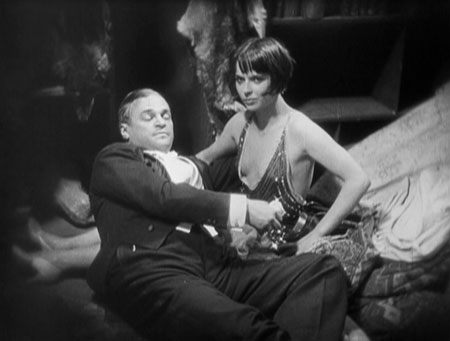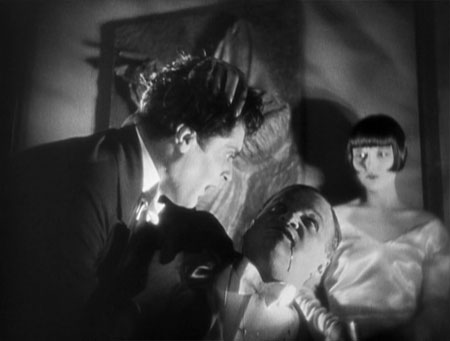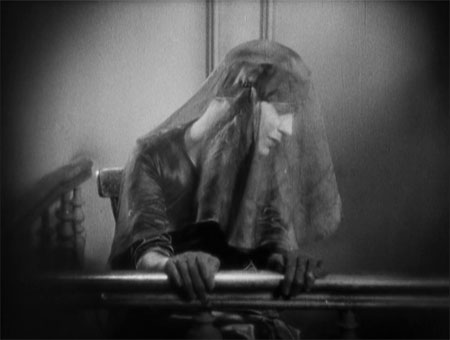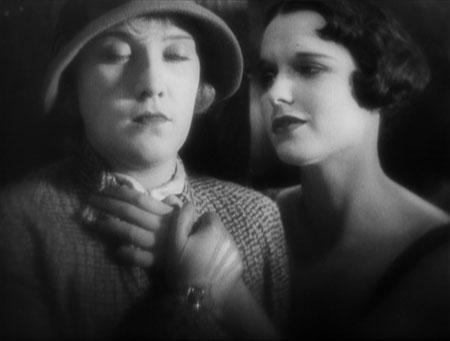Category: Cinema
Reviews of movies Adam has seen or films he has worked on.
A part of this viewing list: Criterion Collection Spine #358: G.W. Pabst’s Pandora’s Box.

I said I’d finished watching all of the films that I’d seen before, but Pandora’s Box showed up at the Library recently, and I’ve currently got Bicycle Thieves in the queue. Watching Pandora’s Box this time around was much more fulfilling than the first time I saw it. I’m a big fan of Weimar-era films and German Expressionism in general, so an excuse to rewatch this was quite welcome. The Criterion folks had four separate musical accompaniment choices to join with the film, I switched through all of them during my screening, and have to say that I liked the piano improvisation one the best.

Pandora’s Box is one of those films that film buffs consistently praise and place on a pedestal. For its time it was quite frank and racy, and its non-judgmental aspect is something that would become sorely lacking in American cinema once the Hays code went into effect. This film is a German product, though the main character is played by Kansan Louise Brooks, whose acting was pitch perfect for the tone that Pabst was aiming for in his rendition of Franz Wedekind’s Lulu saga.

Lulu is the archetypal whore with a heart of gold, a woman whose free sexuality ultimately ruins her entire world. This part gets mentioned in just about every review of the film, but what interests me the most is how ahead of its time her character and its portrayal appear to be. From one angle Lulu appears to be a misogynist’s dream/nightmare, a woman that affirms the standard anti-woman talking points with no regard to the effects her aberrant behavior has on otherwise “good” people. The vampiric shot of Lulu and Dr. Schön is probably the ultimate expression of this. At the same time, she’s an excellent example of a liberated woman, defined by her sexuality instead of repressed by it. Countess Geschwitz is considered to be the first obvious lesbian character in film history.

Male characters are all negative, completely controlled by their own libidos, which are expressed through an obsession with Lulu. Because none of the characters [except Lulu] retain any shred of innocence, there is little sympathy for them as they destroy themselves. The strength of Pandora’s Box lies in this realistic, Modern treatment of love and lust. Despite the silence of the film, the acting and screenplay ensure that the film will remain trenchant as long as all is fair in love.

• Criterion Essay by J. Hoberman.
• YouTube clips [1, 2].
• Some screenshots.
• Guardian Article.
• Louise Brooks Society.
• Louise Brooks Gallery.
• Wedekind play Erdgeist [in German] at Project Gutenberg.